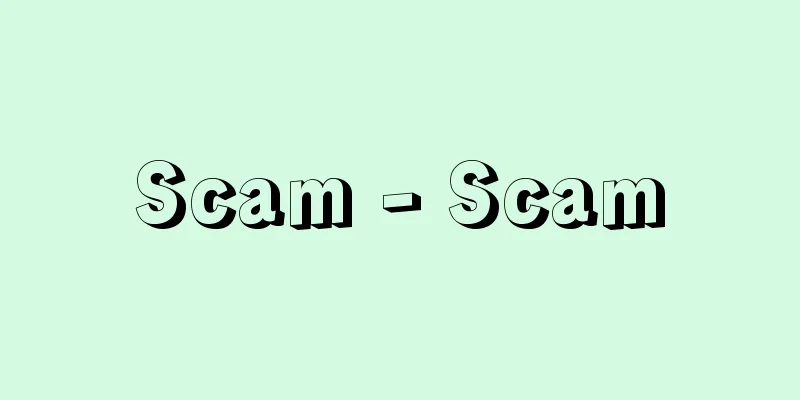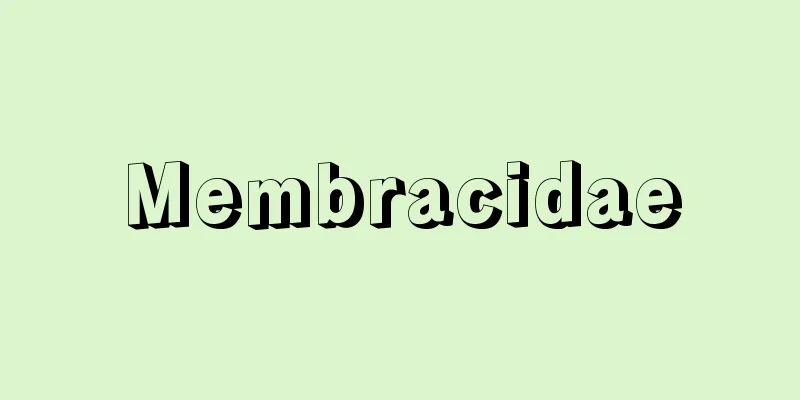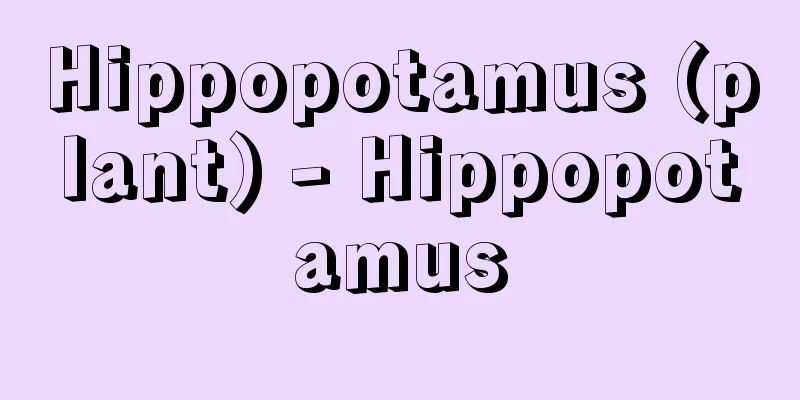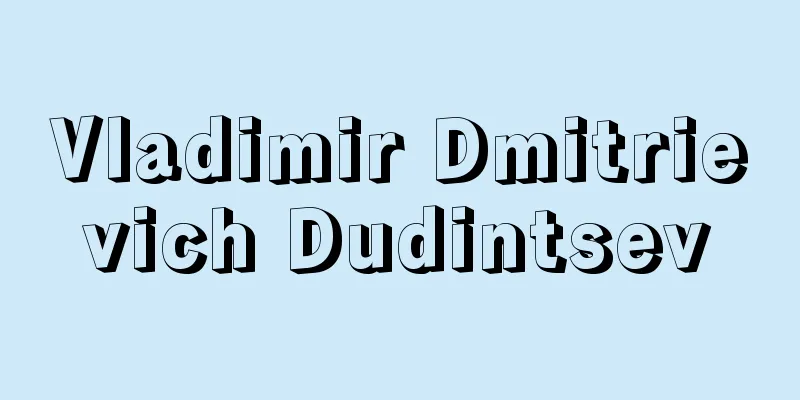Scam - Scam

|
It means to deceive someone (to make them believe false facts) and lead them into a mistake. [Ken Kawai] Under civil lawIt is said that a manifestation of intention made through fraud can be rescinded (Article 96, Paragraph 1). For example, if B is buying land owned by A and B tells A the false fact that there are plans to build a waste disposal facility nearby, and says that land prices will fall and it would be better to sell now, and B buys the land at a low price, A can rescind the manifestation of intention to buy or sell. As a result, B is obligated to return the money received, and A is liable for unjust enrichment (Articles 703 et seq.), such as the right to claim the return of the land that was handed over. In this way, victims of fraud are protected, but unlike victims of duress, there are limits to this protection. This is because, compared to duress, victims of fraud also have some disadvantages. Below are examples of cases in which a rescission based on fraud cannot be made and cases in which it is limited. (1) When a third party commits fraud, there are cases in which rescission is not possible. The Civil Code provides that when a third party commits fraud in a manifestation of intention to a person, that manifestation of intention may be revoked only if the other party becomes aware of this fact (Article 96, Paragraph 2). To take a precedent example, in a sale of land between A and B, if it is not B who commits fraud, but a third party C who commits fraud against A, and B purchases the land without knowing this fact, then it is necessary to protect B, and therefore A cannot revoke his manifestation of intention to sell. In cases of duress, unlike cases of fraud, the manifestation of intention may be revoked. (2) Against a third party acting in good faith, the claim of rescission due to fraud is limited. In other words, the rescission of a manifestation of intention due to fraud cannot be asserted against a third party acting in good faith (Article 96, paragraph 3). In a previous example, if B defrauds A to buy land at a low price, and B resells the land to a third party C who is unaware of the fraud, A cannot assert ownership due to rescission in order to protect C's trust. In this case, there are differing theories as to whether A cannot assert rescission even if C has not obtained a transfer registration, and there are no clear precedents (there is a precedent that C who has made a provisional registration is protected). In the case of duress, unlike fraud, the effect of rescission can be asserted against a third party acting in good faith. In the preceding example, if A, who has been defrauded, cancels the sale, ownership of the real estate will be restored from B to A, but this requires a registration from B to A (Article 177). In the preceding example, if A cancels the sale on the grounds of B's fraud but leaves the registration in B's name untouched, and B sells it to C and transfers the registration to C, A cannot claim restoration of ownership to C, regardless of whether C acted in good faith or bad faith. Furthermore, if a person causes damage to another person through fraud, he/she will be liable for damages as a tort (Article 709). In addition, the Civil Code provides special treatment regarding fraud with respect to defects in representation (Article 101, Paragraph 1), annulment of marriage (Article 747), annulment of adoption (Article 808, Paragraph 1), and annulment of will (Article 1025, proviso). [Ken Kawai] Criminal lawThe Penal Code provides for the crime of fraud as a type of property crime (Article 246, see also Article 248 for quasi-fraud). Fraud is the crime of deceiving and misleading a victim into making a financial disposition with a defective intention. In 1987, the Penal Code was amended to include Article 246-2 as a computer crime, creating a new crime of fraud using a computer. Furthermore, special penal laws provide for various penalties for fraud and similar or preliminary acts (for example, Article 81 of the Real Estate Transaction Business Law, Article 70 of the Specified Commercial Transaction Law, and Article 29 of the Law Concerning the Proper Execution of Budgets Related to Subsidies, etc.). [Tetsuro Nawa] [Reference item] | |Source: Shogakukan Encyclopedia Nipponica About Encyclopedia Nipponica Information | Legend |
|
人を欺罔(ぎもう)(虚偽の事実を信じさせること)して錯誤に陥れることをいう。 [川井 健] 民法上詐欺による意思表示は、取り消すことができるとされる(96条1項)。たとえば、Aが所有する土地をBが買うにあたって、近くにごみ処理場が建設される計画があるという虚偽の事実をBがAに伝え、地価が下がるからいまのうちに売ったほうがよいと述べてBが安く土地を買った場合には、Aは売買の意思表示を取り消すことができる。その結果、Bには受け取った代金の返還義務、Aには引き渡した土地の返還請求権のような不当利得(703条以下)の問題が生ずる。このように、詐欺による被害者は保護されるのであるが、強迫による被害者と異なり、その保護には限界がある。強迫の場合に比べ、詐欺の場合には被害者にも若干のおちどがあるからである。以下に詐欺による取消しができない例および制限される例をあげる。 (1)第三者が詐欺をしたときには、取消しができない場合がある。民法は、ある人に対する意思表示につき、第三者が詐欺を行った場合においては、相手方がその事実を知ったときに限り、その意思表示を取り消すことができると定める(96条2項)。前例でいうと、AB間の土地の売買において、Bが詐欺をしたのではなくて、第三者CがAに対して詐欺をした場合に、Bがこの事実を知らないで土地を買い受けたときには、Bを保護する必要があるので、Aは売買の意思表示を取り消すことができない。強迫の場合は詐欺の場合と異なり、意思表示を取り消すことができる。 (2)善意の第三者に対しては、詐欺による取消しの主張が制限される。すなわち、詐欺による意思表示の取消しは、これによって善意の第三者に対抗することができないとされる(96条3項)。前例で、BがAに詐欺を働いて安く土地を買い受け、詐欺の事実を知らない第三者CにBがこの土地を転売したときには、Cの信頼を保護するために、Aは取消しによる所有権を主張することができない。この場合に、Cが移転登記を受けていないときにも、Aが取消しを主張しえないかどうかについては学説が分かれ、判例も明確ではない(仮登記をしたCが保護されるという判例がある)。強迫の場合は詐欺の場合と異なり、取消しによる効果をもって善意の第三者に対抗することができる。 前例で、詐欺にかけられたAが売買を取り消した場合に、不動産の所有権はBからAに復帰するが、それにはBからAへの登記が必要である(177条)。前例で、AがBの詐欺を理由に売買を取り消したが、B名義の登記を放置しておいたところ、BがこれをCに売りCに登記を移転すると、Cの善意・悪意にかかわらず、Aは所有権の復帰をCに主張できない。 なお詐欺により、他人に損害を与えた場合には、不法行為として損害賠償義務を負うことになる(709条)。そのほか、民法は、詐欺に関して、代理行為の瑕疵(かし)(101条1項)をはじめ、婚姻の取消し(747条)、養子縁組の取消し(808条1項)、遺言の取消し(1025条但書)につき、特別の扱いを定めている。 [川井 健] 刑法上刑法典は、財産犯の一種として詐欺罪の規定を設けている(246条、なお248条の準詐欺罪参照)。詐欺罪とは、被害者を欺罔し、錯誤に陥れて、瑕疵ある意思により財産的処分行為をさせる罪である。1987年(昭和62)の刑法一部改正によって、コンピュータ犯罪の一つとして、246条の2が追加され、電子計算機使用詐欺罪が新設された。さらに特別刑法において、詐欺やその類似的または予備的行為につき、さまざまな罰則規定を設けている(たとえば宅地建物取引業法81条、特定商取引法70条、補助金等に係る予算の執行の適正化に関する法律29条など)。 [名和鐵郎] [参照項目] | |出典 小学館 日本大百科全書(ニッポニカ)日本大百科全書(ニッポニカ)について 情報 | 凡例 |
Recommend
Paihuawen Movement (English: Paihuawen Movement)
The movement of colloquial writing in modern China...
Inro - Inro
A type of accessory for men. It is a small contai...
Furuta Oribe
A military commander and tea master in the Azuchi...
Martenot, M.
...It was named after this instrument. In the sam...
Kanchenjunga [mountain] - Kanchenjunga
A high peak in the Himalayas located on the border...
Karamai - Karamai
A city on the western edge of the Junggar Basin in...
Ascendant
…Under current law, the term has no more than a l...
Kasabub, J.
...The Congo was divided into many tribes, includ...
Oliver Wendell Holmes
1841‐1935 American jurist. Born in Massachusetts. ...
Cowherd boy - Ushikaiwara
〘 noun 〙 A person who drives an ox cart . They hav...
Asakura Norikage
A member of the Asakura clan, a feudal lord in th...
Pitch difference - Onteisa
...This makes it possible to use many more keys t...
Averroes
…the leading philosopher and physician in the Wes...
High tensile strength steel
A steel plate with a tensile strength (maximum st...
Overtax - Casey
A transit tax on goods that began to be imposed in...








![Tannu-ola [Mountain Range] (English spelling)](/upload/images/67cc2a8ba2bd2.webp)
